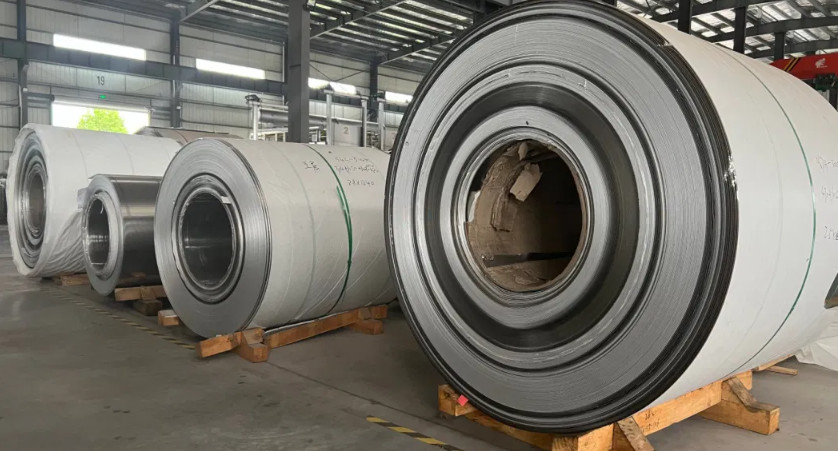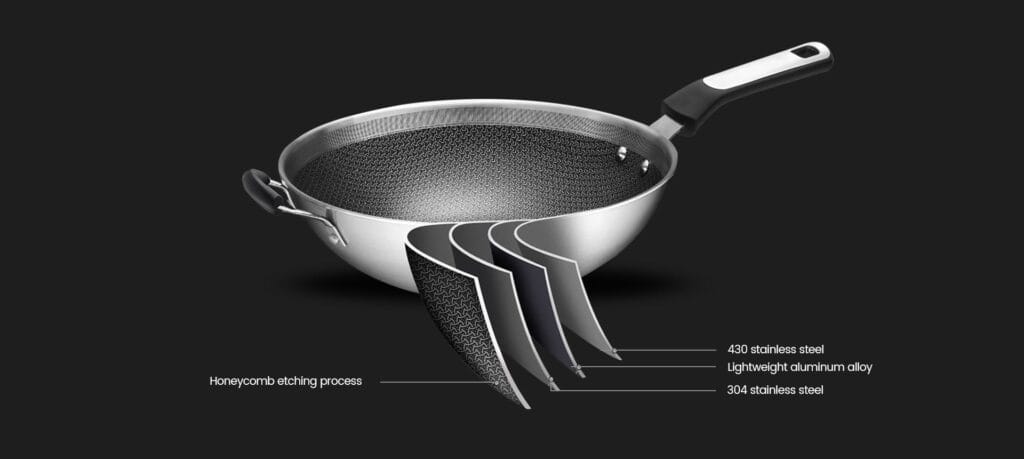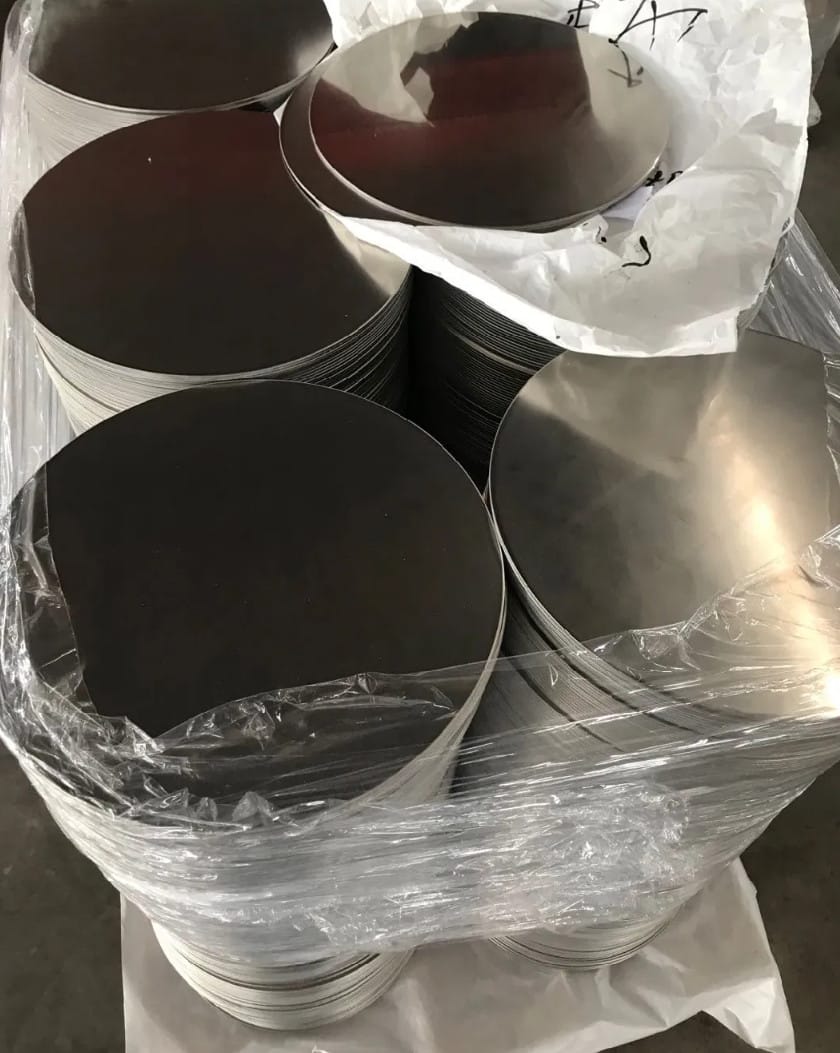Introduction: The Importance of Certifications in Triply Cookware Manufacturing
Certifications and standards ensure that triply cookware meets quality, safety, and performance benchmarks. For manufacturers, compliance with these requirements not only enhances consumer trust but also ensures their products are eligible for sale in global markets. But what certifications or standards are necessary for triply cookware manufacturing?
Manufacturers of triply cookware need to meet certifications and standards related to food safety, material quality, environmental sustainability, and industry-specific regulations to ensure compliance and marketability.
Let’s examine the key certifications and standards required in this industry.

What Food Safety Certifications Are Required?
Triply cookware comes into direct contact with food, making food safety certifications a top priority. These certifications ensure that the materials and manufacturing processes meet health and safety guidelines.
• FDA (Food and Drug Administration): In the United States, cookware must comply with FDA regulations to ensure it is free from harmful substances that could leach into food.
• LFGB (Lebensmittel- und Futtermittelgesetzbuch): In Europe, this German food safety standard verifies that cookware materials are safe for contact with food and do not release harmful substances.
• EU Framework Regulation 1935/2004: Governs materials and articles intended to come into contact with food, requiring extensive testing for chemical migration.
Compliance with food safety standards ensures that triply cookware is safe for everyday use in kitchens worldwide.
How Do Material and Quality Standards Apply?
The materials used in triply cookware, such as stainless steel and aluminum, must adhere to stringent quality standards to ensure durability and performance.
• ASTM International Standards: ASTM provides specifications for stainless steel (e.g., ASTM A240) and aluminum (e.g., ASTM B209), ensuring the materials meet mechanical and chemical property requirements.
• ISO 9001: This quality management system standard ensures that manufacturers follow consistent processes to produce high-quality products.
• EN Standards: European Norms (EN) specify quality criteria for metals used in cookware, such as EN 10088 for stainless steel.
Material standards ensure that the cookware is durable, safe, and performs well under various cooking conditions.
What Environmental Certifications Are Relevant?
Sustainability is increasingly important in cookware manufacturing, and certifications demonstrate a manufacturer’s commitment to environmentally friendly practices.
• ISO 14001: This environmental management system standard ensures that manufacturers minimize their environmental impact during production.
• REACH (Registration, Evaluation, Authorization, and Restriction of Chemicals): Ensures that materials used in cookware do not contain harmful chemicals, protecting both consumers and the environment.
• RoHS (Restriction of Hazardous Substances): Ensures that restricted substances, such as lead and mercury, are not used in cookware production.
These certifications help manufacturers align with consumer demand for eco-friendly products and global sustainability goals.
How Do Performance Standards Impact Triply Cookware?
Triply cookware must meet performance standards to ensure it delivers on promises like even heat distribution, durability, and safety under high heat.
• ISO 4210: Sets guidelines for testing cookware performance, including heat distribution, thermal stability, and durability.
• DIN EN 12983-1: This European standard outlines requirements for cookware, including resistance to thermal shock and corrosion.
• Non-Stick Coating Standards: For triply cookware with non-stick coatings, manufacturers must comply with standards like PFOA-free certification, ensuring coatings are safe and durable.
Performance certifications guarantee that the cookware meets consumer expectations and withstands real-world cooking conditions.
What Export Certifications Are Necessary?
For global manufacturers, export certifications and compliance with international trade standards are essential for entering specific markets.
• CE Marking: Required for products sold in the European Economic Area, ensuring compliance with EU safety, health, and environmental standards.
• CCC (China Compulsory Certification): For products sold in China, cookware must comply with safety and quality standards under the CCC system.
• Customs Union Certification: Required for cookware sold in Russia and other Eurasian countries, ensuring compliance with local regulations.
Export certifications enable manufacturers to access and compete in global markets while adhering to local regulations.

How Do Social Responsibility Standards Apply?
Consumers and businesses increasingly prioritize manufacturers that adhere to ethical labor and corporate social responsibility practices.
• SA8000: Focuses on fair labor practices and workplace safety in manufacturing facilities.
• BSCI (Business Social Compliance Initiative): Ensures ethical production practices, including fair wages and safe working conditions.
• ISO 26000: Provides guidelines on corporate social responsibility, encouraging manufacturers to operate ethically and sustainably.
Adherence to these standards enhances brand reputation and aligns with modern consumer values.
What Testing and Certification Labs Support Compliance?
Manufacturers often rely on third-party labs to verify compliance with certifications and standards.
• SGS: Offers testing services for food safety, material quality, and performance standards.
• TÜV Rheinland: Specializes in testing for compliance with EU and international safety standards.
• Intertek: Provides certification for food safety, performance testing, and environmental compliance.
Using reputable testing organizations helps manufacturers ensure their products meet all necessary requirements and instills consumer confidence.
Claim: Why Certifications Are Critical for Triply Cookware Manufacturing
Certifications and standards ensure that triply cookware meets rigorous safety, quality, and environmental benchmarks, enabling manufacturers to build trust with consumers and compete in global markets.
Conclusion: The Role of Certifications in Cookware Manufacturing
Certifications and standards are essential for ensuring the safety, performance, and sustainability of triply cookware. By complying with food safety regulations, material standards, and environmental guidelines, manufacturers can produce cookware that meets the demands of modern kitchens while maintaining ethical and responsible practices.
For manufacturers, adhering to these certifications is not just about compliance—it’s a commitment to delivering quality products that consumers can trust and rely on.






